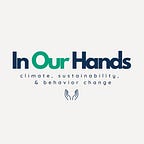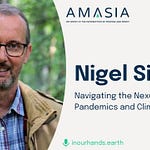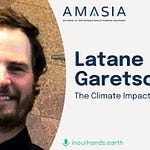In this episode of In Our Hands, Ramanan Raghavendran speaks with Khadeeja Naseem, the State Minister of the Environment, Climate Change, and Technology for the Maldives.
They discuss the challenges and opportunities presented by the climate crisis, particularly for small island states like the Maldives, emphasizing the importance of strong leadership, political will, and taking the necessary actions to address the climate crisis and protect vulnerable nations.
Full transcript available above. This episode is also available on Apple Podcasts and Spotify.
In Our Hands is a production of Amasia. Follow these links for more about our firm, the Amasia blog, our climate fiction podcast, and Ramanan’s blog.
Highlights
[01:22] Hajja's Background and Decision To Join Politics
[07:55] The Maldives' Vulnerability to Climate Change
[14:41] The Importance Of Cutting Emissions
[16:21] The Role Of Technology and Data In Addressing Climate Issues
[19:01] Using Technology To Understand The Environment
[21:57] The Importance Of Sustainable Fishing and eco-tourism
[25:25] Using Agency To Push For Change
[26:58] Empowering Individuals To Take Action











